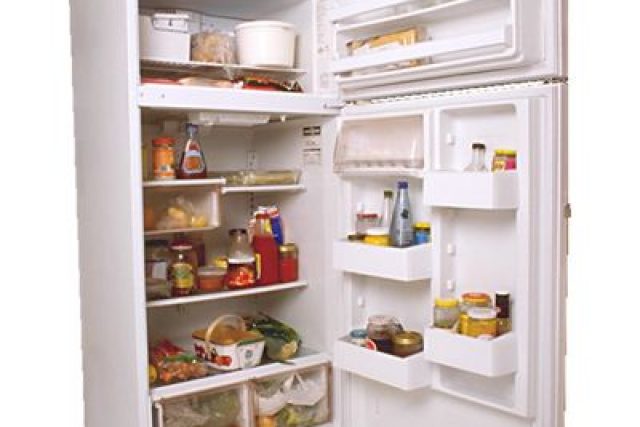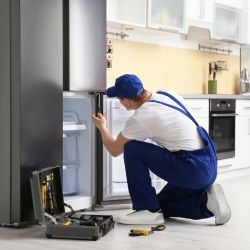fridge mechanic near me

A refrigerator is a vital part of a functioning kitchen, so when it stops working, you may be worried about what to do. Has your fridge stopped cooling? we can help!
diagnose the problem
Fridge stopped cooling
The first step is to grab a flashlight and take a look at the back of your fridge to see if you can identify the problem. Look for signs of rust, dirt buildup or obstructed vents that might be blocking air circulation. You should also check the power cord and ensure it’s securely plugged into the wall outlet. If you’re still unable to detect a cause, you may need professional help.
Check for Obstructions in the Refrigerator Coils.
If your refrigerator isn’t cooling as expected, a major cause may be obstructions blocking the refrigerator coils. Loose objects like cereal boxes or plastic bottles can block the heat exchange mechanism, preventing cold air from circulating properly inside the fridge. Before you call in an expert technician to repair the problem, take some time to look through and around your fridge for any potential obstructions that may be causing an issue.
Inspect the Door Seal and Gaskets for Air Leaks.
An easy way to check the refrigerator’s cooling efficiency is to inspect the seals and gaskets around the door. These seals and gaskets help keep a tight seal between the fridge and external environment, preventing ambient air from entering. If these seals are loose or cracked, then they may need to be replaced by an appliance technician. To test if there’s a leak, close the fridge and have someone else slip a credit card into the doorway and pull it back out again. If there is resistance, that means your seal is working; but if it slides out with ease, you likely have an air leak!
Adjust Temperature Settings Throughout the Fridge and Freezer Areas.
To get your refrigerator up and running, it’s important to adjust the temperature settings throughout the fridge and freezer sections accordingly. This can be done easily; simply consult the manufacturer’s instructions for your particular model. It’s best to keep temperatures between 35-38°F in your refrigerator, and 0-5°F in your freezer. Keeping temperature settings too cold or too hot will cause the unit to run inefficiently, so make sure both settings are where they should be!
Clean The Condenser Coil and Fan Blades Once a Year.
Every home refrigerator has a condenser coil and fan, located either on the back or underneath it. The condenser coil is responsible for dispersing heat that’s generated by the unit’s compressor. It collects a lot of dust and dirt over its lifespan, so it should be cleaned every 12 months with a soft brush or vacuum cleaner. Similarly, make sure to wipe down any visible dust on your fan blades with a damp cloth. Doing both can help improve air flow throughout the unit and ensure optimum efficiency!
